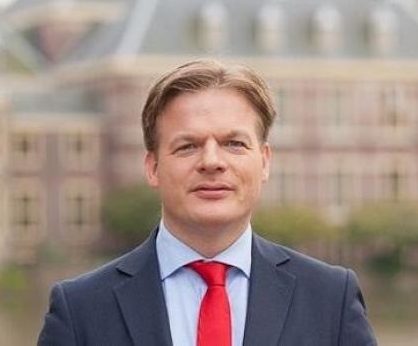In 2016, as the Islamic State (ISIS) conducted its violent campaign against religious minorities in the Middle East, several actors including politicians, civil society members, and religious leaders raised awareness about the genocidal nature of these atrocities and called for action. Even though some actors—such as the Council of Europe; European Parliament; the parliaments of Austria, Australia, Canada, France, Hungary, Italy, Lithuania, and the United Kingdom; and the governments of the United States, Canada, and most recently the Netherlands—have formally recognized ISIS atrocities as genocide, many others have not. Indeed, the UK government continues to argue that the “international judicial system,” not politicians, should determine genocide.
The Canadian and Dutch parliaments initially took a similar position. However, the Canadian parliament has recognized ISIS atrocities as genocide after the Independent International Commission of Inquiry on the Syrian Arab Republic (the Commission on SAR) made this determination in its report “They Came to Destroy: ISIS Crimes Against the Yazidis.”
The Dutch government also made a U-turn on the issue but followed a different approach. It requested an expert opinion to deal with two questions, namely whether politicians could determine genocide and whether ISIS atrocities amounted to genocide. The expert opinion of two independent advisory bodies confirmed that politicians could make the determination and that, in all likelihood, ISIS committed genocide and crimes against humanity against religious minorities in the Middle East. Nonetheless, the UK government continued to be reluctant in changing its position on the issue.
The UK relies on its long-standing policy of leaving the question of genocide for the “international judicial system.” The issue of genocide determination has been resurfacing over the past few years in conjunction with the crimes ISIS perpetrated. On April 20, 2016, the UK House of Commons unanimously recognized ISIS atrocities against religious minorities as genocide, in response to a motion tabled by Fiona Bruce, MP. Nonetheless, the UK’s response remained unchanged.
Without changing its position on recognizing the ISIS genocide, on September 19, 2016, the UK government announced it would cooperate with the Belgian and Iraqi governments to bring ISIS perpetrators to justice. This collaboration resulted in a UN Security Council resolution that established an investigative team to collect, preserve, and prepare evidence of ISIS atrocities in Iraq for any future prosecutions. Nonetheless, a failure to recognize mass atrocities that fulfill the particulars of genocide as genocide is a flagrant breach of the UK’s obligations under the UN Convention on the Prevention and Prosecution of the Crime of Genocide. If a state does not recognize mass atrocities as genocide (or attempted genocide), it would likely fail to take adequate steps to stop the crimes, prevent them from continuing, and prosecute the perpetrators.
This is also why Lord David Alton of Liverpool in the UK House of Lords introduced the Genocide Determination Bill, a private members’ bill with the aim to “provide for the High Court of England and Wales to make a preliminary finding on cases of alleged genocide; and for the subsequent referral of such findings to the International Criminal Court or a special tribunal.” If successful, the UK would not need to wait for the international judicial system to recognize genocide. Understandably, it is not only about the word genocide but the actions that are likely to follow once the recognition is made.
The word genocide should not be used lightly. However, we cannot justify shifting the burden of making such a recognition onto the international judicial system without undertaking steps to ensure that the international judicial system would consider the question. The bill tabled by Lord Alton provides a solution to deal with the tradition of genocide denial. Other options, including the steps taken by the Dutch government, are worth considering. In any event, a change in the approach is needed.
—
Pieter Omtzigt (Ph.D., Econometrics, European University Institute in Florence) has been a Member of the Dutch Parliament since 2003 and a replacement Member of the Parliamentary Assembly of the Council of Europe since 2004. In the Dutch Parliament, he is a spokesman on pensions, taxes, and Europe. In the Parliamentary Assembly of the Council of Europe and at home, he has strived to uphold human rights and freedom of religion. On many occasions, he has raised the situation of persecuted Christians both in the Dutch Parliament and in Europe. He was a driving force for including the aim of bringing ISIS fighters to justice in the Dutch government agreement in the year that the Netherlands holds a temporary seat in the UN Security Council. In the Parliamentary Assembly of the Council of Europe, in which MPs from 47 member states take part, his proposal to recognize the atrocities of ISIS as acts of genocide passed in January 2016. He is now proposing further research into the way European weapons ended up in the hands of ISIS. He is the co-author of The Slow disappearance of the Syriacs from Turkey and of the grounds of the Mor Gabriel Monastery.
Ewelina U. Ochab is a human rights advocate and author of the book Never Again: Legal Responses to a Broken Promise in the Middle East. She works on the persecution of minorities around the world, with main projects including Daesh genocide in Syria and Iraq, Boko Haram atrocities in West Africa, and the situation of religious minorities in South Asia. She has written over 30 UN topical reports (including Universal Periodic Review reports) and has made oral and written submissions at the Human Rights Council sessions and the UN Forum on Minority Issues. Ochab is currently working on her Ph.D. in international law, human rights, and medical ethics. Follow her work on Twitter: @EwelinaUA.
Photo Credit: Screenshot of ISIS propaganda video.







